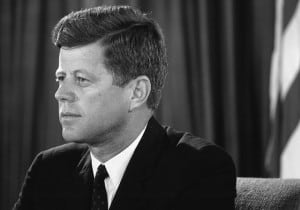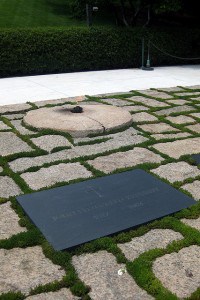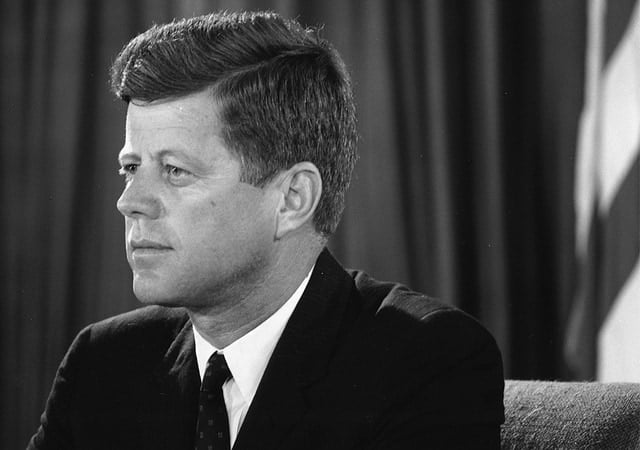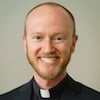
President John F. Kennedy addressing the nation from the Oval Office during the Berlin Crisis in 1961.
(Cecil Stoughton, White House/ John F. Kennedy Library)
The recent deluge of articles, TV specials, and in-person conversations about today’s 50th anniversary of President John F. Kennedy’s assassination makes me think that both as individuals and as a country we’re still searching for the words to make sense of Kennedy as a man, as a President, as a victim of assassination, and as a figure whose legacy is very much alive. What exactly is it about JFK that makes us keep searching for more?
For my own part, I find JFK to be an inspiring figure. He was the first (and only, so far) Catholic President. He guided the country through the first few years of what turned out to be an exceptionally turbulent decade. Navigating the Cuban Missile Crisis, introducing civil rights as a moral issue into the national political conversation, and helping to forge a preliminary nuclear test ban treaty are solid accomplishments as a leader.
Beyond his geo-political achievements, Kennedy left a legacy that continues to impact America in other areas. Two enduring and notable programs that JFK initiated are Project Apollo at NASA and the Peace Corps. Both have come to have lasting impacts on the country and the world. He also started the Presidential Medal of Freedom award, which continues to recognize leadership and public service by U.S. civilians.
So what then of Kennedy’s shortcomings, both public and private? While he spoke out about civil rights, his commitment to the movement overall is tougher to praise wholeheartedly. Further, beginning the U.S.’s involvement in Vietnam, the calamitous Bay of Pigs invasion, marital infidelity, and concealed health issues all tend to tarnish his reputation.
Yet we keep seeing all of this anniversary coverage.
Something about JFK continues to fascinate us. His accomplishments mentioned above could have something to do with it. It could be the “Camelot” imagery built around his youth, charisma, and attractive family. It could be the question of “what could have been?” had he not be killed a mere 1,036 days into his term.

JFK’s grave and eternal flame at Arlington National Cemetery (photo by Flickr Creative Commons User Wally Gobetz)
I think that JFK’s enduring legacy is that he called America to be more: to dream bigger, to reach for the stars, to recognize our need to help our disadvantaged sisters and brothers, to build lasting peace, and, most famously, to “ask not what your country can do for you, ask what you can do for your country.”
And all of this from a man who was just that — human! Just like each and every one of us, he had his limitations, imperfections, and weaknesses. Yet through his own words, his legacy calls all of us — you, me, everyone — to be more.
As we commemorate the 50th anniversary of John F. Kennedy’s death, perhaps our tribute to him can be to recognize his too short-lived, imperfect humanity while seriously, honestly considering where we as a country are right now, and how desperately we still need people to call us to be more.
Rest in peace, Jack.


